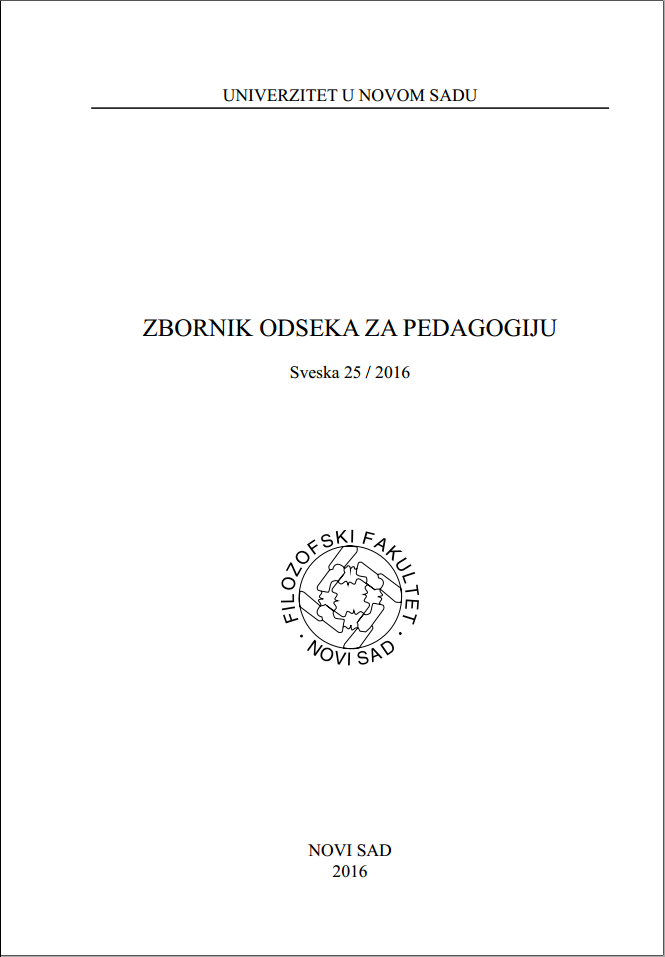Povezanost socijalne kompetentnosti dece predškolskog uzrasta sa prihvatanjem u grupi i antisocijalnim ponašanjem
Correlation of Social Competence of Preschool Children with Adoption in a Group and Antisocial Behavior
Author(s): Jasmina Klemenović, Stanislava Marić Jurišin, Jelena NikolićSubject(s): Preschool education, Social psychology and group interaction
Published by: Филозофски факултет, Универзитет у Новом Саду
Keywords: social competence; acceptance in the peer group; anti-social behaviour; programs for practicing social skills
Summary/Abstract: During the first years of a child’s life, he/she establishes different socioemotional relationships that shape his/her psycho-social development. In addition to acceptance by members of the family, the socialization of the child specially implies the relationships and acceptance by the peers. Socially competent children use different stimuli from the environment, as well as their personal skills and interests, to participate in the community which they belong to. A child’s development and learning are significantly hampered if the incentives for interaction are absent or hindered for quite a long time by inappropriate behaviour of the child and / or the peer rejection. With the intention to act preventively, there has been created a research in five preparatory preschool institutions in Vojvodina. The aim of the research was the correlation between children’s social competence (N = 120) and their acceptance among peers, and their tendency to antisocial behaviour. Findings from scaling and sociometry show that preschoolers mutually significantly differ in acceptance, social and anti-social behaviour, where a significant positive correlation has been found between social competence and a number of years spent in the institution, while girls are rated as more competent and more accepted. During the first years of a child’s life, he/she establishes different socioemotional relationships that shape his/her psycho-social development. In addition to acceptance by members of the family, the socialization of the child specially implies the relationships and acceptance by the peers. Socially competent children use different stimuli from the environment, as well as their personal skills and interests, to participate in the community which they belong to. A child’s development and learning are significantly hampered if the incentives for interaction are absent or hindered for quite a long time by inappropriate behaviour of the child and / or the peer rejection. With the intention to act preventively, there has been created a research in five preparatory preschool institutions in Vojvodina. The aim of the research was the correlation between children’s social competence (N = 120) and their acceptance among peers, and their tendency to antisocial behaviour. Findings from scaling and sociometry show that preschoolers mutually significantly differ in acceptance, social and anti-social behaviour, where a significant positive correlation has been found between social competence and a number of years spent in the institution, while girls are rated as more competent and more accepted.
Journal: Zbornik odseka za Pedagogiju
- Issue Year: 2016
- Issue No: 25
- Page Range: 41-56
- Page Count: 16
- Language: Serbian

